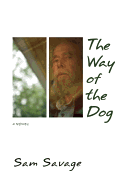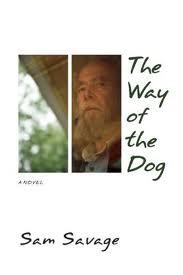
 Sam Savage's first novel, the international cult favorite Firmin, might easily have been a one-off. After all, he was 65 when it was published, and he had a history of health issues. Three novels later, Savage not only seems to be going strong, The Way of the Dog is perhaps his best book yet. The overeducated rat narrator of Firmin provided an effective quirky voice for Savage to poke at pseudointellectuals and the woeful state of the world. The narrator in The Way of the Dog, aging minor writer and failed artist Harry Nivenson, still skewers the superficiality of the world around him, but this time Savage leavens the caustic curmudgeonly voice with one of evolving self-knowledge and humility. It's as if Savage has rolled Bukowski's Henry Chinaski, Ellison's Invisible Man and Dostoevsky's Underground Man into a more forgiving modern observer.
Sam Savage's first novel, the international cult favorite Firmin, might easily have been a one-off. After all, he was 65 when it was published, and he had a history of health issues. Three novels later, Savage not only seems to be going strong, The Way of the Dog is perhaps his best book yet. The overeducated rat narrator of Firmin provided an effective quirky voice for Savage to poke at pseudointellectuals and the woeful state of the world. The narrator in The Way of the Dog, aging minor writer and failed artist Harry Nivenson, still skewers the superficiality of the world around him, but this time Savage leavens the caustic curmudgeonly voice with one of evolving self-knowledge and humility. It's as if Savage has rolled Bukowski's Henry Chinaski, Ellison's Invisible Man and Dostoevsky's Underground Man into a more forgiving modern observer.
Harry is an often sarcastic commentator on his gentrifying neighborhood of college town liberal professionals in their bike-riding spandex, lean jogging females with their "hard-muscled pistons" and the nanny-propelled "double- and even triple-wide strollers that span the sidewalk like threshing machines." He's "an inveterate griper and malcontent" whose "rotting three-story hulk" of a house is his way of "flying the banner of decay" in a neighborhood of new abundance. From his invalid perch, he looks out his front window as his neighbors' work week begins "as if someone had kicked an anthill.... They are excited, grim, resigned, hopeful, in a terrible rush burdened with backpacks, briefcases, wires hanging from their ears."
Although he has abandoned his family, Harry takes comfort in serving the daily needs of his old dog Roy, who is always "stopping now and then to lift a leg or sniff at something," a routine where "in a larger existential sense I followed him, adapted myself to his life program." When his former artistic mentor and housemate commits suicide, Harry discovers new meaning and value in the paintings left behind. His estranged son and ex-wife return to scrub his neglected living quarters, tend his lawn and provide Zen-like advice along with healthy food. Harry begins to soften and finally replace his sense of himself as one who "lived a long time but accomplished little" to one who "went this way, then that way, then another way altogether, and... made a pattern of zigzags down the road of life"--much like the romps of his live-in-the-moment canine companion Roy. --Bruce Jacobs
Shelf Talker: With wry observation and commentary, an aging failed artist finally lets go of his nihilism and finds some solace in the kindness of family and the untroubled life of his dog.

